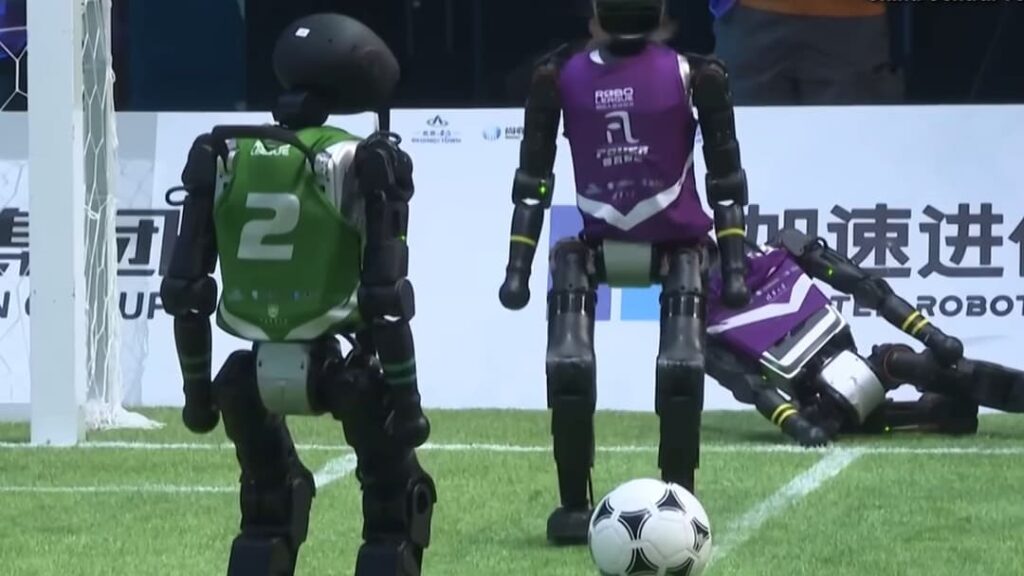China has officially hosted the world’s first AI-powered football match, with humanoid robots going head-to-head in a historic 3v3 showdown.
Held in Beijing, the match saw robots from four top universities compete with zero human control. All dribbling, shooting, and even goal celebrations were executed using onboard AI with no outside commands. Just six little robots on the pitch, powered by real-time decision-making, and a dream to win it big.
In fact, the only human element here was the referee and the crowd, who looked on excitedly as the two robo teams stumbled about the pitch like a bunch of drunk toddlers (nobody said it would be graceful).
While their speed and accuracy weren’t anywhere near comparable to their human counterparts, the match was filled with comical highlights. The robots notably toppled over one another when trying to get the ball, while one memorable moment saw an AI-powered athlete being stretchered off the pitch.
However, there could only be one winner, and Tsinghua University’s team beat China Agricultural University’s team 5–3 in the final, much to the delight of the cheering crowd.
While there was no post-match interview with the robotic wonderkids, Booster Robotics founder Cheng Hao told the Global Times the reasoning behind his futuristic football game.
“We chose the football scenario for robot competition primarily for two reasons: first, to encourage students to apply their algorithmic skills to real-world robotics; second, to showcase the robots’ ability to walk autonomously and stably, withstand collisions, and demonstrate higher levels of intelligence and safety,” Cheng said.
“Football, as a typical scenario of both confrontation and collaboration, provides the public with an intuitive understanding of the real-world application potential of humanoid robotics.”
While there were some collisions, for the most part, the next-gen footballers managed to navigate the pitch and their artificial competitors. This was because each bot was equipped with visual sensors, predictive algorithms, and dynamic balance systems.
When it comes to scoring goals and darting around the pitch, they’re nowhere near the likes of Ronaldo or Messi, but the Bian Yuansong, the event co-organizer, said the future is looking bright for robotic sports.
“In the future, we plan to develop a series of robotics competition IPs, including the humanoid robot half-marathon and ‘Mech League,’ to accelerate the real-world application and large-scale adoption of humanoid robot technologies.”
The football match is the latest chapter in China’s push to lead in robotics and AI. Earlier this year, the country held the world’s first robot fighting tournament in Hangzhou, and it has also rolled out driverless cars across multiple cities.
Content shared from www.dexerto.com.

